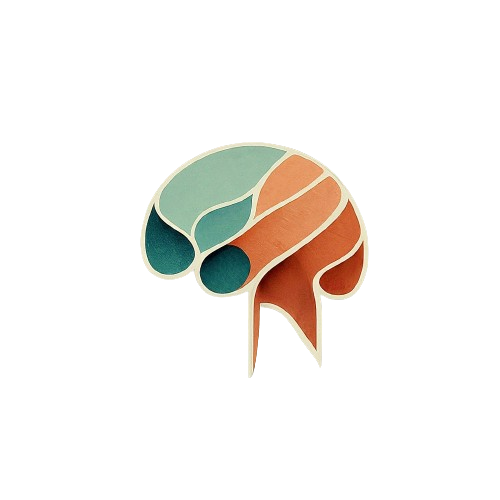An estimated 4.4% of adult Americans experience bipolar disorder at some point in their lives. If you have bipolar disorder, you may feel as though you’re riding an emotional roller coaster, with intense highs and lows that can be difficult to control. If you’re hesitant to use medication due to potential side effects, you might be wondering how to manage bipolar disorder without medication.
While there is no cure for bipolar disorder, it can be effectively managed with a combination of treatments. Although medication is a key part of treatment, there are several non-medicinal approaches that can also help manage symptoms and improve quality of life.
Understanding the Role of Medication in Bipolar Disorder
Not adhering to prescribed bipolar disorder medications can lead to serious risks, including increased likelihood of hospitalizations and suicide attempts. Therefore, consider these alternative strategies as complementary to medication and therapy.
Mental Health Activities to Manage Bipolar Disorder
Engaging in certain mental health therapies and activities can enhance mood, cognitive function, and overall well-being. Research-supported options include:
- Art Therapy: Art therapy offers a creative outlet for expressing emotions and can be highly beneficial with minimal risks.
- Cognitive Behavioral Therapy (CBT): CBT focuses on changing negative thought patterns and behaviors, reducing the risk of relapse, and improving overall psychosocial function.
- Journaling: Keeping a journal helps track moods and identify triggers. Expressive writing and gratitude journaling are two effective types used in psychotherapy.
- Problem-Solving Exercises: Problem-solving skills can aid in managing stress and improving recovery from mood episodes.
- Relaxation Techniques: Practices like yoga, meditation, and deep breathing can reduce stress and promote calmness, especially beneficial for those exposed to trauma.
Lifestyle Changes to Support Bipolar Disorder Management
Incorporating lifestyle changes can also support bipolar disorder management:
- Routine: Establishing a consistent daily routine can stabilize moods. Aim for regular wake-up times, meals, and exercise.
- Healthy Diet: A balanced diet with fruits, vegetables, whole grains, and lean proteins supports overall mood and energy.
- Regular Exercise: Exercise boosts mood, sleep, and energy levels. Aim for 30 minutes most days of the week.
- Avoiding Substances: Steer clear of alcohol and drugs, which can worsen bipolar symptoms.
- Stress Management: Managing stress through relaxation techniques and healthy coping mechanisms can help prevent mood episodes.
Handling Manic Episodes
If you experience a manic episode, consider these strategies:
- Remove Yourself from Triggers: Leave situations that exacerbate symptoms.
- Practice Relaxation Techniques: Use deep breathing or progressive muscle relaxation to reduce stress.
- Engage in Physical Activity: Activities like aerobic exercise, yoga, and Tai Chi can release endorphins and improve mood.
- Talk to a Trusted Person: Discussing your experiences with a trusted friend or family member can help reduce isolation and provide perspective.
- Identify Triggers: Recognizing what triggers manic episodes can help in avoiding future occurrences.
Potential Risks of Skipping Medication
Not taking bipolar disorder medication poses several risks:
- Severe Symptoms: Skipping medication can lead to more intense symptoms, increased hospitalizations, and higher suicide risk.
- Difficulty Managing Symptoms: Untreated symptoms may become harder to control and impact daily life.
- Higher Risk of Substance Abuse: Without medication, there’s a greater risk of self-medication with alcohol or drugs.
- Relationship Strain: Untreated bipolar disorder can strain relationships and hinder support systems.
Medication for Bipolar Disorder
Although alternative strategies can be helpful, medication is often crucial for managing bipolar disorder. Options include:
- Mood Stabilizers: Medications like lithium stabilize mood swings.
- Antipsychotics: Drugs such as Seroquel (quetiapine) help manage psychotic symptoms and mania.
- Antidepressants: Used cautiously, antidepressants like Prozac (fluoxetine) can treat depression without triggering mania.
- Anti-Anxiety Medications: Medications like Ativan (lorazepam) address anxiety and sleep issues.
- Anticonvulsants: Some anticonvulsants, like Depakote (divalproex sodium), are used to stabilize mood.
Off-Label Medications
Certain medications may be prescribed off-label for bipolar disorder when standard treatments are ineffective or cause side effects. Examples include Topamax (topiramate) and Trileptal (oxcarbazepine).
Can Bipolar Disorder Improve Naturally?
Bipolar disorder is a chronic condition requiring ongoing management. While lifestyle changes and mental health activities can support treatment, medication remains essential for stabilizing mood and preventing relapses. Consult a mental health professional to develop a comprehensive treatment plan tailored to your needs.
For more information on managing bipolar disorder and finding appropriate treatment, seek guidance from a qualified mental health professional.



